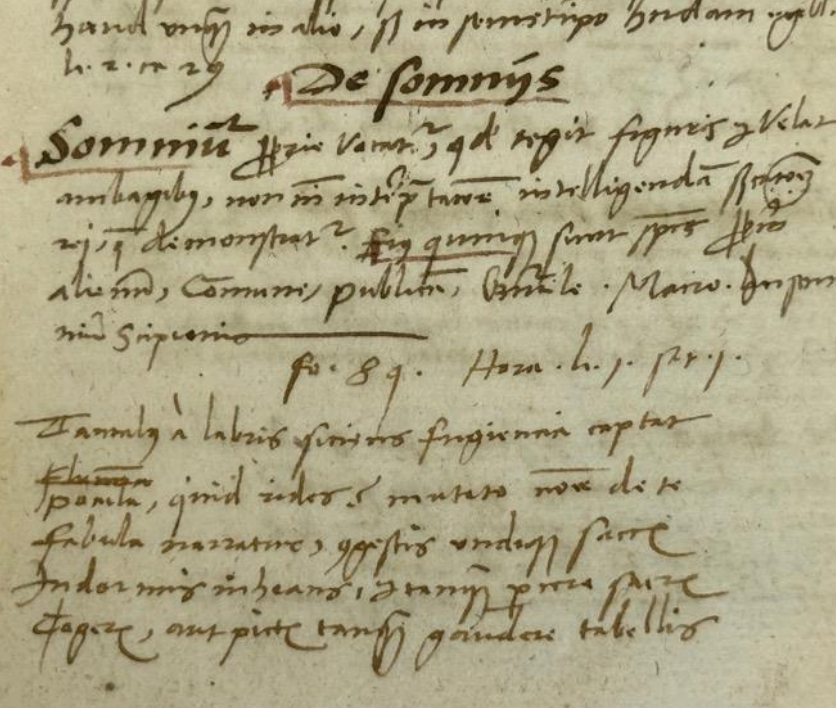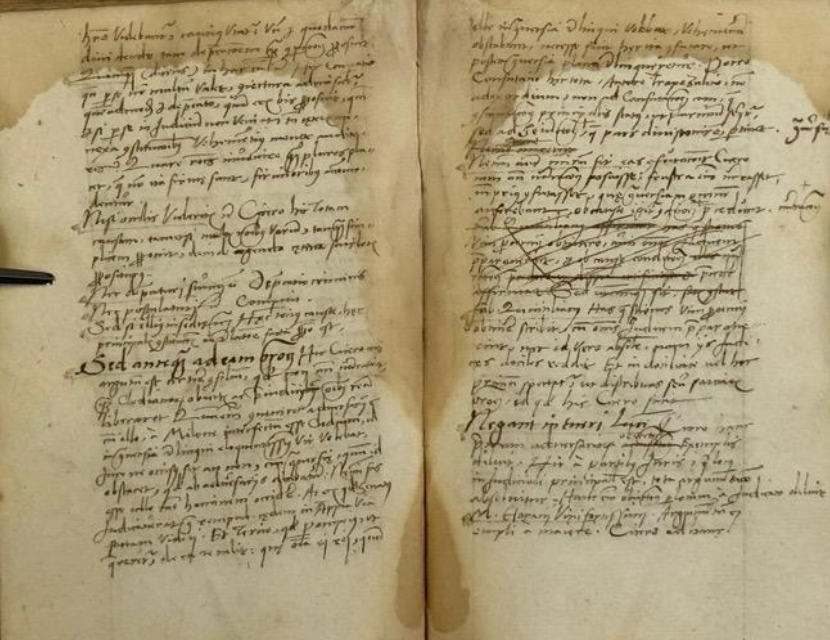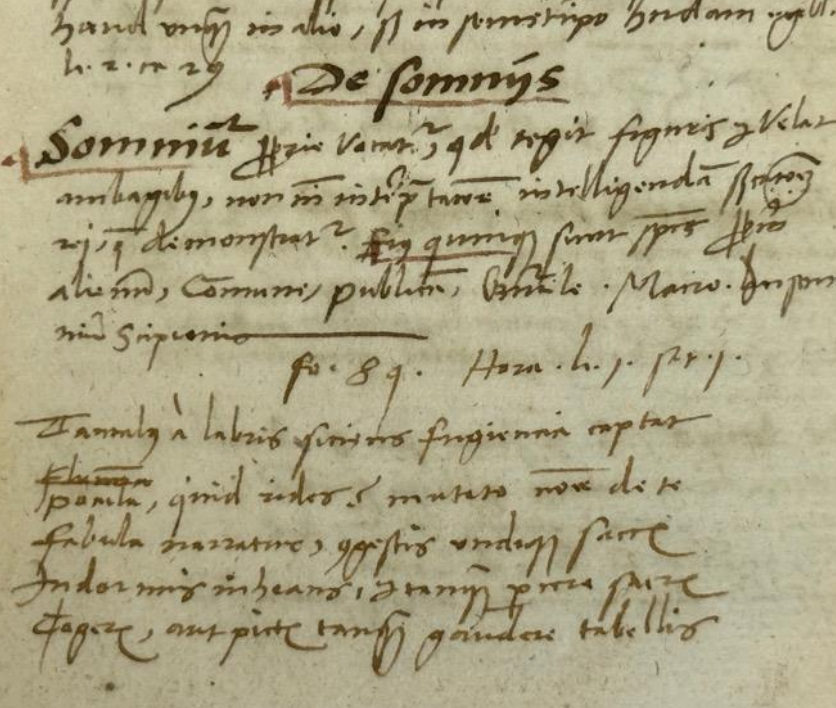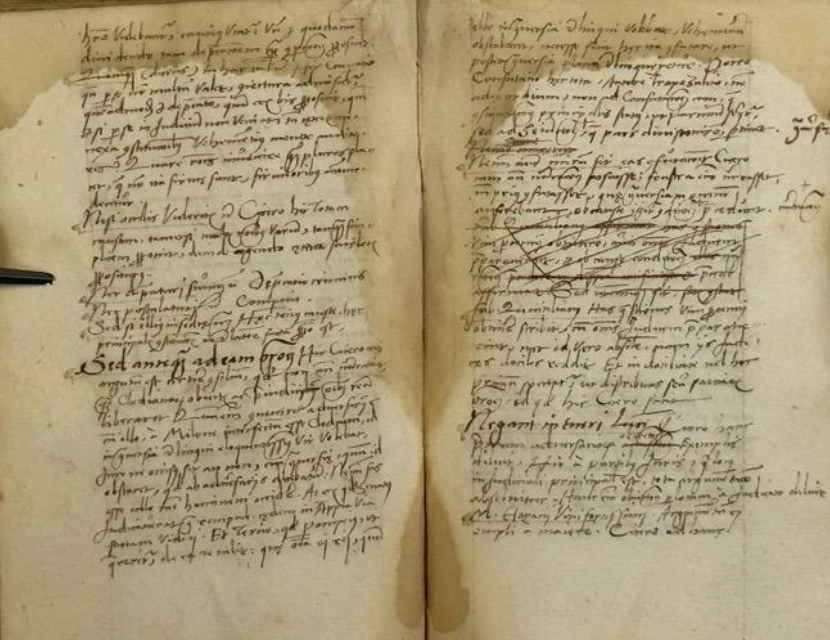De Bry Rare Books
Reformation “Dream-catchers” - German manuscript on rhetoric and prayer c1500-1550 with reference to Philipp Melanchthon and the interpretation of dreams
Reformation “Dream-catchers” - German manuscript on rhetoric and prayer c1500-1550 with reference to Philipp Melanchthon and the interpretation of dreams
Couldn't load pickup availability
Reformation “Dream-catchers”
German manuscript on rhetoric and prayer c1500-1550 with reference to Philipp Melanchthon and the interpretation of dreams
-Latin Manuscript on paper 16x 11cm
-36 pages [including 4 blanks – 30,31,35&36]
-Modern binding with reused incunable leaf.
-Complete as such. Old water stains to upper and inner edges of pages affecting text.
This interesting German manuscripts from the 1500s discusses the key skills of rhetoric. Namely: Personal traits, topical argument, elocution, figures of speech, pronunciation, and the interpretation of dreams. The work has a religious focus, discussing ”Oratione” or prayer, so was perhaps written by a priest during their studies.
The text refers to Philipp Melanchthon (1497-1560), a celebrated German Lutheran theologian who focused on translating and editing works for scholars and the public. Born Philipp Schwarzerdt, he adopted the Greek name “Melanchthon” (Black Earth) to underscore the depth of his humanist learning. Having close contact with Luther, Melanchthon’s teachings on rhetoric were composed within a Protestant context and highlighted the importance of structured prayer and the interpretation of scripture. A keen supporter of education, he sought to make the Protestant Christian doctrine accessible.
The interpretation of Dreams “De Somniis”, within a Melanchthon context was interesting as although dreams were important to his theology, he was aware that not all dreams were divinely influenced. Melanchthon felt that they could be caused by natural phenomena, such as hunger or desire, while the devil could also influence dreams to deceive or confuse. Dreams were to be interpreted within a scriptural context. Famously, Melanchthon was visited in a dream by his deceased daughter, Anna, on the night of her death - a visitation which he used as evidence for the persistence of the human soul after death.
Regarding the other subheadings of this manuscript “Personae description” (Description of characters) was based on Classical rhetoric by Cicero and others. It taught speakers to portray individuals accurately to help make arguments more persuasive. In a Melanchthon context it was reframed for Christian purposes to teach Christian moral virtues. “Argumentum loci” was a key concept within Melanchthon theology, basing arguments on firm scriptural foundation within a protestant context. ”De Elocutione” and “De Pronunciatione” underlined the importance of clear speech and delivery, while “De “schematibus” highlighted the role of rhetorical devices and metaphors to please the reader. An interesting contemporary manuscript of the early German reformation worthy of further study.
With German Export License




